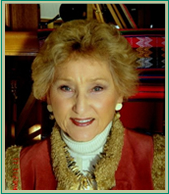
K-9's and Raking Leaves
|
 |
|
| Christa Metzger Associate |
One sunny, cool morning last month I walked outside to let my dog Max enjoy a run. My mind was focused on the article on intentions that I was planning to write for the Lens.
Somewhat distracted, I spied a carpet of leaves in our driveway. How could so many leaves have collected there already? Ah yes, it’s September, I mused, and I’ll be raking a great many leaves in the weeks ahead. To rake leaves had not been on my to-do list for the day, not at all.
Called by nature to revise my to-do list, however, I dutifully began raking leaves into piles. Suddenly I became aware of an inner anxiety. My breath was coming in short spurts, and I was raking with hurried strokes. In other words, I was rushing through the task.
Since I’d been thinking about intentions, I asked myself what my intention was in raking the leaves. Was it to rush through the job and finish it, so that I could move on to the next tasks that were already on my list for the day? Was it to display a tidy driveway for anyone who might be driving by (which seldom happens here in our woods)? Was it to be diligent and earn a compliment from my husband that evening?
What if, instead, my intention had been simply to enjoy the fall colors, hear the rustling of the dry leaves, feel the fresh air and sunshine, pay attention to the profusion of hickory nuts rolling around, and maybe toss a few nuts to the busy squirrels? How might my activity have been different with such an awareness?
I decided, in that moment, that the most important part of intentions is to become aware of what they are in the first place. This would apply to any task—whether it arises from a conscious goal or whether it just happens.
Then I remembered something from my past, when I first became superintendent of a school district in the greater Los Angeles area. When I arrived, the community was in the middle of preparing for its biggest annual fund raiser. Everyone was involved: service organizations, our school board members, city and community leaders, even the Chamber of Commerce. I was expected to attend, of course. I was a bit unclear about the intention of the fund raiser—something to do with “K-9’s.” I’m embarrassed to admit that I had never before heard of that term as referring to police dogs, i.e., canines. A number of these honored creatures were in attendance that evening, demonstrating their skills and making their handlers proud.
I confess that I was actually shocked when I learned the purpose of this fund raiser. Nothing against police dogs, but I thought there might have been other needs that this particular community could have chosen to address. I knew that many children and families of mixed racial and ethnic backgrounds had recently moved into the community. They were mostly poor and isolated from the formerly all-white middle-class populace. I wondered if the community leaders who had organized this event were aware of how much their own community had been changing. Were they conducting this event simply because it was a local tradition? Their goal and action to raise money was definitely a success, but I wondered if they might have chosen a different cause if they had thought deeply about their underlying intentions. Had anyone reflected on the current and most urgent needs of the community?
Now to tie together the K-9 event and raking leaves. Here are some questions I think we need to ask ourselves—as individuals in our personal lives, as leaders of groups, and collectively (provided groups have the capacity to be self-reflective):
What is the underlying intention for a goal I set or an action I propose? St. Augustine said that if you love God you can do whatever you please. But he added that the soul had first to be trained in love of God and in what God wills (that’s the intention part of it).
What is the “spirit” of my action—the reason and principle on which my action is based? Have I thought about how this (my “end”) would “justify the means” (my actions)? If my end (intentions) or my means (actions) are morally wrong (that is, not done with love or in the will of God), then I am probably “paving my road to hell”—as the proverb states.
And here is what I believe to be the most important question of all: Am I even aware of my underlying intention? Am I really paying attention not only to my goal and action, but to the why of it?
As my yoga teacher always says, “Set an intention for your practice this evening.” Raking leaves, conducting fund raisers, or anything else in life is best done with full awareness of the intention that underlies our goal, our practice, the task or action we are considering.
When I smile and consciously enjoy the sunshine while raking leaves, my whole being is rejuvenated. My breathing is deep and my spirit is free. The result is the same: a clean driveway. When we—whether as leaders, as individuals, as a community of people, as an organization, or as an institution—reflect deeply on our intentions, on our most urgent and important needs, we have a choice. The action we choose need not be based on old habits or past history, but on something that brings smiles and sunshine and positive results both to those engaging in, and to those affected by, our actions.
![]()
Center for Empowered Leadership ®
Email: info@cfel.org
Phone: 1.609.259.7911
